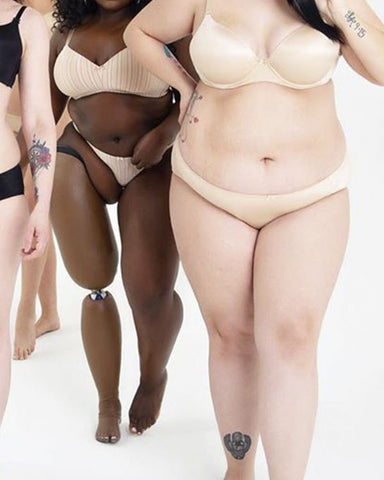Sexuality and Disability
World Disability Day, which was declared in 1981 as a way to promote the rights and well-being of disabled people. Although sexuality is a fundamental aspect of one’s well-being, it is still seen as a gigantic taboo when discussed in terms of disabilities.

For this reason, we spoke with Anna Castagna, an educator and sexologist consultant. At the root of it all, there is an incorrect and stereotyped understanding of disability, which all too often promotes pity. The real taboo is linked to this incorrect understanding, more than the sexual aspects surrounding disabilities.
“When we combine “sex” and “disability” in the same phrase, I believe that the basic concepts of “sex” and “disability” get lost in the mix,” Anna told us - “In order to understand the union between sexuality and disability, we must learn to deconstruct the concept that we ourselves have internalised. This is the only way we can possibly direct our thoughts towards the truth, with the essential knowledge that when we talk about sexuality, we’re talking about a fundamental human right.”
When we talk about disability, we are not referring to one specific disability that is the same for everyone, but rather, a wide range of both physical and cognitive conditions that can be present from birth or arise at any point in life.
Regardless of disabilities, each and every one of us is different. It is crucial to recognise this in order to further learn about ourselves.

An important step in the right direction could be sex education, a right that is not always acknowledged, especially for those with disabilities. Each situation is different; some are part of a family that recognises the basic aspect of their children’s lives, despite everything. This was the case for Anna: “In my family, openness about sexuality and matters surrounding the body were never a taboo. This was definitely important, because it made my sexual awareness that much easier. Unfortunately, my disability presented itself at an early age, and the fact that my body attracted a “different” type of attention allowed me to listen more carefully.
But this openness is not always so common: many live in situations where experimenting, or even just talking about sexuality is not the norm, as though it is considered of minor importance or an unlikely occurrence. While it might be discussed, it’s limited to a simplistic and standardised idea: cis, hetero, and without any interest in things like BDSM, for example.
However, when this importance is recognised, organisations such as LoveGiver are there to make a difference. The project was founded by Max Uliveri, and trains operators who are capable of assisting in experiments related to emotion, affection, and sexuality. The organisation is the only one of its kind in Italy. A specific and inclusive education is just as important for those close to the disabled person, which is why the non-profit organisation is also “an aid to families that often find themselves alone when facing this issue, and a way to raise awareness and hope for an immediate future of sociological change free from preconceptions and prejudices”.
________________________________________________________________
You may also like: What is Normal?
________________________________________________________________
All of this is not only useful when approaching your body, but also when relating to others with respect and open dialogue. This concept is not often taught in sex education programs at schools, which among other things, exist only for cis, straight, and able-bodied people.
When approaching those with disabilities, many able-bodied people still have qualms or an inexplicable fear: “When an able-bodied person feels fear when approaching a disabled person, where does that fear come from? Does it come from social ideology or from actual facts? In the vast majority of cases, the limitation that we have in our heads is what stops us. It’s been driven by incorrect sociological concepts, which give way for the stereotype of a disabled person as both emotionally and physically fragile, limited and unable to experience pleasure as we know it.”
That which is understood as an insurmountable diversity in the sexual sphere can actually be a means for dialogue and discovering new types of pleasure. For example, sex toys can be great for those dealing with physical disabilities, since they can help one achieve pleasure while also providing it with greater agility. It’s almost as if we’ve grasped the differences and peculiarities of each body, but only because we’ve received obvious clues as to how disability could be. We’ve never recognised any of these differences in terms of able-bodies, which we automatically assume function like all the other bodies we’ve already encountered, seen in porn, or learned about in Sex-Ed.

